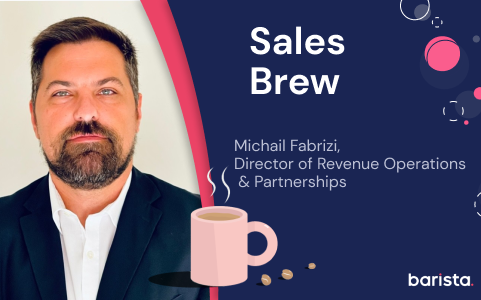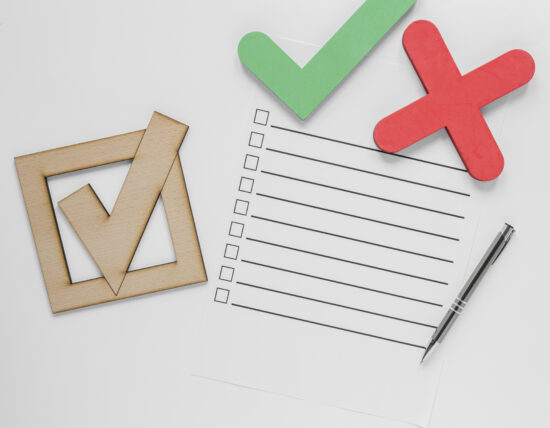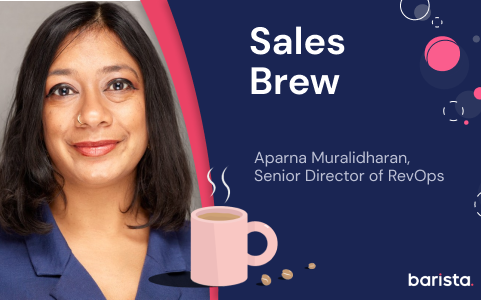Salesforce hygiene: Sales Brew - Jake Rasmussen, Salesforce Consultant

Roy Weinstock
For the 9th episode of Sales Brew by barista AI, we had the opportunity of hosting Jake Rasmussen, a passionate Salesforce Consultant and founder of Databased to talk about Salesforce hygiene and data quality best practices. Jake is a Salesforce guru, so you might enjoy this one if you’re looking to take your CRM to the next level
To watch the full interview and get updated on every sales brew episode, subscribe to our YouTube channel. A short version and transcription are below. Get a cup of coffee and enjoy the show!
What was the career journey that got you into Salesforce admin?
Yeah, it’s kind of funny because the interlink of why I got into Salesforce and then why I actually opened my own firm, mostly because I got into sales, let’s see, back in 2015, 2016, and obviously, I was onboarded. I was taught the CRM as a sales development rep. I kind of figured out that a lot of sales is being organized and making sure you can follow up with people and then remember what you talked about when you’re following up with them.
I was working at a really small startup with around 15-20 people at the time. Someone bought Salesforce, and they were surprised to know that they had to pay money to set it up. And they received a big quote for it. So, I thought, “Well, I can take a stab at it. Let me just poke around on YouTube and see what’s out there.” This was when I didn’t know Trailblazer existed or Trailhead or anything. I just started studying and learned the basics of Salesforce.
They let me at work, obviously, stand up Salesforce, and do a couple of basic integrations for our dialer so we could reach out to people and stuff like that. And, yeah, I was like, “Oh, that was easy.” I don’t know why people think all this big data is there, and they’re just like, “it’s too much.” They don’t try to think through it.
The company did very well, not because of the CRM, but because they were a good company with a great product and great leadership. They grew to a couple of hundred people, but a couple of hundred people using Salesforce, they’re all like, “Oh, Jake, what about this? What about that?” Then I moved on to my next sales job, and I just kept having people reach out to me from past roles, like, “Hey, can you help me?” “Hey, I just started at this new company, and their Salesforce is terrible. Can you help me poke around?”
It was like I was trying to be a full-time Salesforce admin on my own, and then all these people from my past experiences and roles just kept asking for help. And I was like, “You know what, there’s enough help that I can offer, so we might as well just go all in and be able to step in and actually provide solutions instead of just being like, ‘well, this is what I think, you could go ask your admin.'” That’s what I would leave them with, and they were like, “That’s really helpful, but I need that to be done.”
So, that’s how I got into it, but it’s been exciting.
How important it is to have a Salesforce admin in-house the organization?
Having a Salesforce admin in-house as part of the revenue operations team is extremely crucial if the leadership or stakeholders in the organization care about analytics and performance reporting. The admin is the owner, manager, and subject matter expert who ensures that the data in Salesforce makes sense. They are also the ones who translate the data for business and customer-facing teams and bridge the gap between sales and HR sales ops. The Salesforce admin is a crucial component in figuring out a CRM solution for the organization’s needs.
What are the most urgent Salesforce data hygiene challenges you’re always facing?
My most common problem is that people have integrations, data, and leads coming into Salesforce, which is a struggle for Salesforce hygiene. Salesforce is essentially just a data warehouse or pool, and if you don’t have an in-house person to set it up and structure it properly, there can be issues. Often, companies have leads coming in from different sources, but they have no idea where they’re coming from or how to send them to the right person because there’s no clear mapping. It’s important for companies to have a map or a log of where data is coming from so they can keep track of it. Another challenge is reps entering data into Salesforce, which can lead to inconsistencies, CRM data leakage and Salesforce duplicates. There are tools to help you manage Salesforce duplicates and it is important to implement those. In addition, tracking and capturing sales activity data is a constant challenge for Salesforce hygiene.
Can you elaborate on the Salesforce data entry protocols you recommend?
When it comes to CRM data entry from sales reps or customer-facing roles, I always aim to keep the number of required fields to a minimum. For example, for account executives, I recommend having lead, contact, opportunity, and account objects that they can update, along with any additional fields that are essential for the organization’s Salesforce system. The reason for keeping the fields to a minimum is that sales reps are busy solving real-world customer problems and may not have the time or brain capacity to fill in a lot of information every day. I suggest using tools like Fireflies to automate note-taking instead of requiring sales reps to type in a lot of information manually.
In addition to minimizing the required fields, I believe that training is essential to ensure that users understand the system and how to use it effectively. Every new rep that comes on board should receive training, and if an org migration or cleanup is necessary, users should receive training afterward. Without proper training, there is a risk of data inconsistencies and the creation of messy data that will require more work to fix later. Ultimately, my goal is to have clean and accurate data, which requires an approach that minimizes data entry and focuses on proper training.
How do you engage reps in your Salesforce hygiene training?
Engaging reps in Salesforce training is a key part of orchestrating CRM data, but it can be a challenge. However, I find that it often comes down to selling them on the value of using the platform effectively. As a Salesforce admin, I understand that sales reps don’t necessarily want to be taught by someone in a non-sales role. That’s why I frame the conversation in terms of how using Salesforce can directly benefit them in their sales efforts.
For example, I might highlight how valuable it would be for a sales rep to know at a glance which opportunities are close to closing or which prospects have just viewed the quotes they sent out. Or, if a business just rolled out a new feature, reps could use Salesforce to quickly find any closed, lost opportunities that might be interested in that feature. By organizing their data effectively and building useful reports and list views, reps can accelerate their sales efforts and close more deals.
What is the #1 tip to govern Salesforce hygiene?
The most crucial tip for governing revenue data and Salesforce hygiene, or CRM data quality in general, is to understand how end-users interact with the CRM. It’s important to ensure that all fields are correctly labeled and that the values in those fields are being utilized effectively. As an administrator, it’s helpful to approach the training process from the perspective of a new sales representative and identify any areas that could be improved. Building reports and analyzing commonalities between deals can also reveal which fields are being used and which should be made required. Overall, having a deep understanding of how the data is being used and making sure that all definitions are streamlined can go a long way in effectively governing Salesforce hygiene.
How do you like your coffee?
I’m an espresso guy. Usually two to four shots a day, depending on the day of the week 🙂
To watch more from Sales Brew about Salesforce hygiene and more:
- Episode 1: Sales Brew with Tyler Meckes, Account manager at Dooly
- Episode 2: Morgan J Ingram, Director of Sales Execution and Evolution at JB Sales
- Episode 3: James Buckley, Chief Evangelist and Master of Ceremonies at JB Sales
- Episode 4: Nieka Mamczak, Head of Sales Enablement at StackOverflow
- Episode 5: Sam Sweeny, Sales Operations Manager
- Episode 6: Benjamin Roach, Global Sales Operations Manager at Ardoq
- Episode 7: Elgun Aliyev, Salesforce Admin at CentralReach
- Episode 8: Amanda Harwood, Sales Operations Manager
- Episode 9: Jake Rasmussen, Salesforce Consultant


